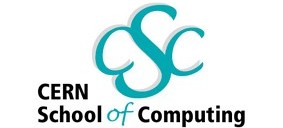|
Series |
Type |
Lecture |
Description |
Lecturer |
| |
|
|
|
|
|
Grid Technologies
|
Lectures |
Lecture 1 |
Introduction to the Grid computing
This lecture
provides an overview about the basics of Grid computing with
respect to Grid architecture, middleware, major
infrastructures, security and information services.
|
Erwin Laure
|
|
Lecture 2 |
Resource Management
Most of the
users of the Grid software interact with the system by
submitting their jobs (executable programs) to a Resource
Broker which does a matchmaking on available and requested
resources and then dispatches jobs to resources on the Grid.
This lecture provides background about the resource
management software system and details about how job
submission is done.
|
Heinz
Stockinger
|
|
Lecture 3 |
Data and Storage Management
One of the
main objectives of a Data Grid is the management of large
distributed data stores. This lecture gives an overview
about replica and meta data management as well as the
software tools provided to deal with data and storage
management problems.
|
Erwin Laure
|
|
Lecture 4 |
Grid
Service Technologies
Recent advances in Grid technologies allow to move from
tightly coupled Grid systems to more loosely coupled Grid
Services exploiting Web Service technologies. In this
lecture we introduce the basic concepts of Grid Services and
their underlying standards.
|
Heinz
Stockinger
|
|
Lecture 5 |
Grid Applications and Optimisation
In this lecture we will discuss typical Grid applications in
HEP and related disciplines as well as techniques to
optimise execution times of these applications.
Wrap-up of
Grid Technologies Track
|
Heinz
Stockinger
|
|
Exercises |
Exercise 1
Exercise 2 |
gLite (Resource and Data Management)
In these two
exercises participants will have access to the gLite
infrastructure and exercise several aspects of job
submission, information services and data management.
|
Erwin Laure
Heinz
Stockinger
|
|
Exercise 3
Exercise 4
Exercise 5
Exercise 6 |
Mini Projects
Equipped
with the basic practical knowledge of using Grid middleware,
students will form project teams that are in charge of
specific, small projects. The main aim is to experience team
work in small project teams as well as real-world challenges
in Grid computing applied to specific application domains. |
Erwin Laure
Heinz
Stockinger
|
|
|
Prerequisite
Knowledge |
Desirable prerequisite
and
References to further
information |
The participant should have basic
understanding of :Linux shell Script as well as Java. In
addition, some understanding of XML is desirable.
References
|
|
|
|
|
|
|
|

